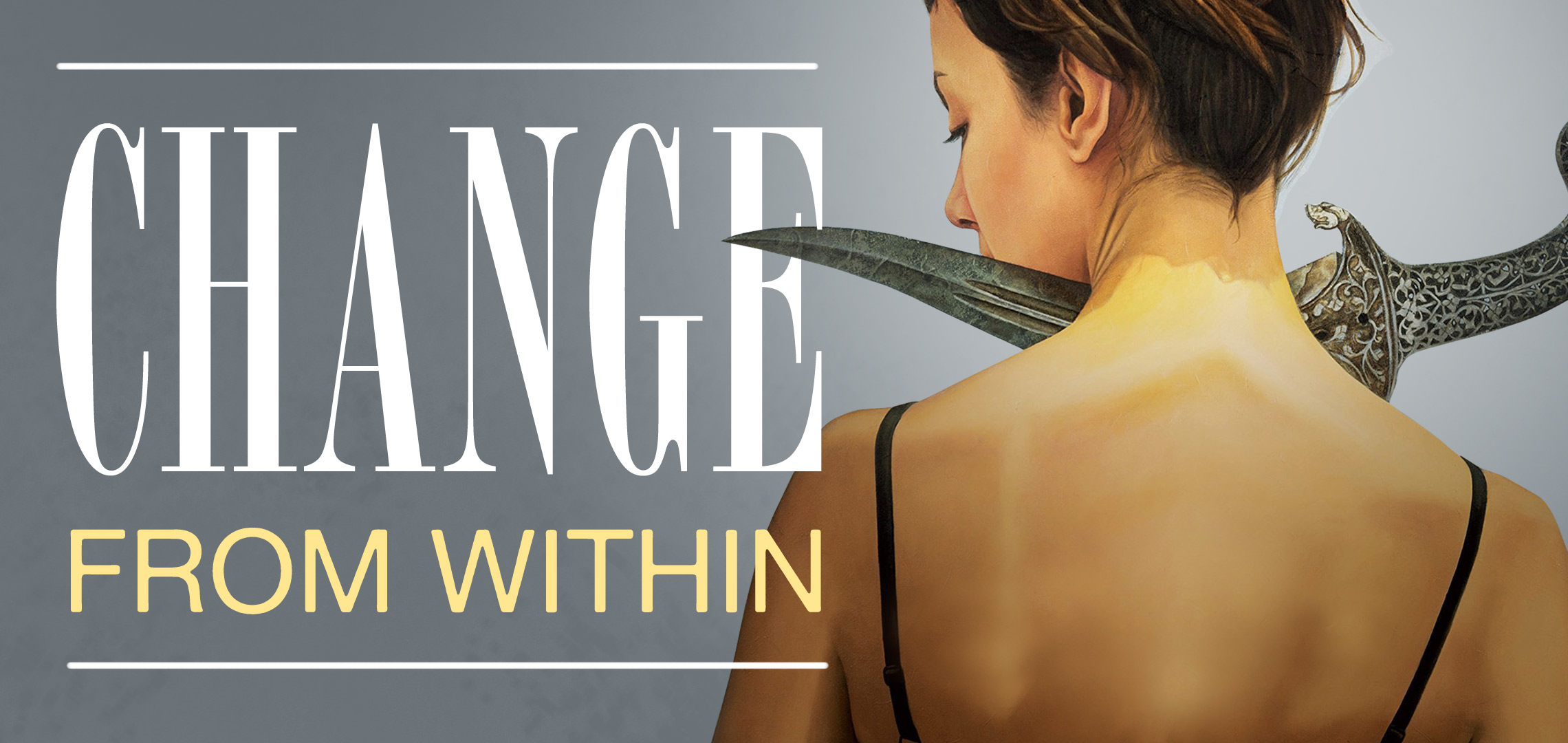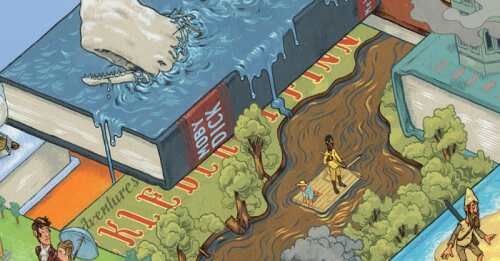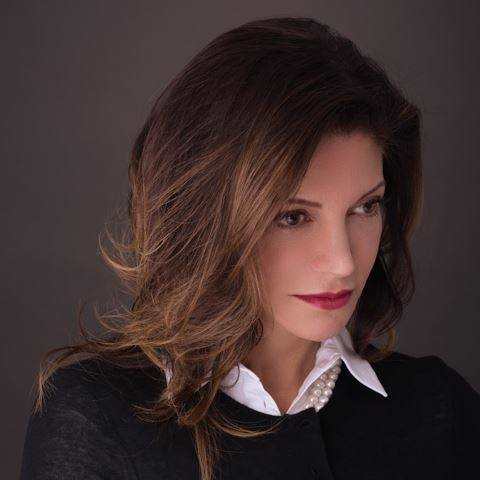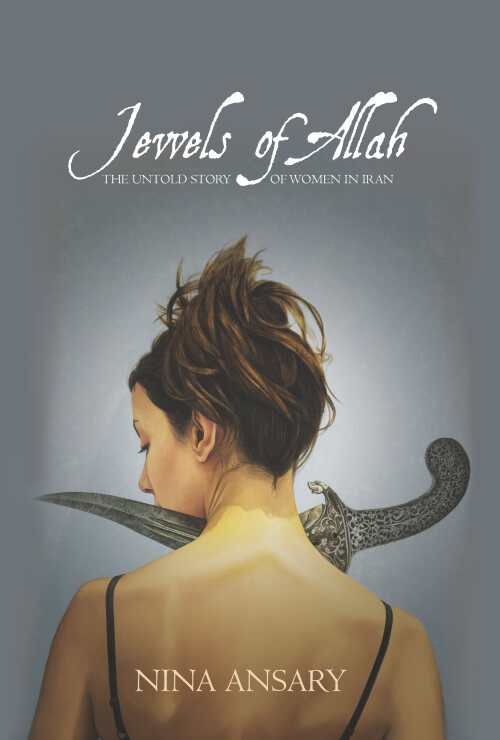Change From Within: The Incredible Women of Iran

Nina Ansary is on a mission. Her work doesn’t just support current feminist revolutions in Iran—which, in their quiet and determined way, are chipping away at the patriarchy at levels both social and theological—but highlights that work in its place on a continuum. Contrary to popular understandings, women in Iran have always been at the fore of change.
At Foreword, we were fascinated by Ansary’s new book, Jewels of Allah, which lauds women from centuries past who were integral to change, and focuses, too, on contemporary women’s contributions. Jewels of Allah stands to teach much about Iran’s past, but it’s also an invaluable peek into its future. Read our interview with Ansary below the news.
First, the News

The Best YA Titles of Winter 2016: Time travel. An internship with the devil. A child in danger who pushes a youngster for help. The teens in our Winter selection of YA titles deal with atypical situations—but they do so with aplomb.
Expanded Management Team: Foreword officially welcomes new Audience Development Manager Seth Dellon and Associate Editor Michelle Anne Schingler to the team.
Featured Books of the Week
The Window Washer, by Eric Rill. Nick takes a job as a building maintenance man after the deaths of his wife and child, hoping that the monotonous work can distract him–but instead he stumbles onto a world of mobsters and double-crosses. Reviewed by Jill Allen.
Mr. Right for the Moment, by Jewl Franklin. Sugar and spice and everything nice? Think again. Tiffany Lynn Scott, a jilted military wife, is out for revenge, and things are getting salty. Reviewed by Claire Foster.
King of Yiddish, by Curt Leviant. Brilliant Israeli linguist Shmulik Gafni has a secret–and it’s not an affair with his appealing PhD student. This tale of a Holocaust survivor seeking revenge is told with panache and appeal. Reviewed by Michelle Anne Schingler.
Forsaken, by Ross Howell Jr. When a black laundress is accused of murder in the Jim Crow South, discovering the truth will require all of one journalist’s investigative skills and fortitude. Reviewed by Bradley A. Scott.
Lily of the Valley, by Xianna Michaels. This beautifully bound poetic saga tells the story of five generations of Jewish American women, on a connected quest to fulfill their dearest family dreams. Reviewed by Michelle Anne Schingler.
Nina Ansary
You recently completed a half -year book tour to promote Jewels of Allah. Can you give us a snapshot of what that undertaking was like?

Nina Ansary

It was exhausting! But also very gratifying. Given that my book focuses on highlighting the accomplishments of Iranian women, not my own, I decided to do a different kind of book tour. Instead of solo events, I organized a series of co-events with people I admire and who I knew could bring their own perspective to the topic of women’s rights in Iran and help me shatter Western stereotypes about Iran’s population in general. In Los Angeles, for example, I had the opportunity to team up with Iranian composer and vocalist Sussan Deyhim and artist Shirin Neshat, both world-renowned and incredibly gracious women, who I still can’t believe accepted my invitation.
In the UK, I had the pleasure of doing a wonderful event with Richard Raymond, director of Desert Dancer (an award-winning film about the underground dance movement in Iran—not to be missed) and author and journalist, Katharine Quarmby at Foyles in London. By exposing the audience to different perspectives, we always sparked a lively Q&A, which then provided new topics to discuss for the next event. The tour covered nine cities—NYC, LA, DC, Seattle, San Francisco, Boston, Dublin, Milan and London—sometimes with multiple stops, and I think what I learned is that less is more. There’s a level of preparation that goes into each event that I had not anticipated.
One of the great revelations of your book relates to the backlash against progressivism under the Shah. What lessons do you think modern leaders can learn from his missteps?
Good question. The Pahlavi era undoubtedly ushered in progressive change in Iranian society, including policies that brought about modern dress, education for girls, women’s increased participation in society, more freedom of the press (including women’s magazines), and the enfranchisement of women.
But it is my belief, as well as that of many analysts and historians, that the cultural shift at this time was too rapid and excessively focused on Westernizing the society rather than giving more consideration to the cultural context into which the Pahlavi policies were incorporated. So what modern readers can learn from the Shah’s albeit well-intentioned missteps, is that no ruler can legislate a social revolution. You cannot legislate change in people’s minds, which is why the history of women’s rights in Iran has been a very slow burn. Change needs to come from within, organically and over time.
You highlight literacy as an important component of women’s liberation. How crucial do you think women’s participation is to continued theological evolution in Iran?
The road to equality for the women’s movement in Iran has undoubtedly been paved with tremendous obstacles, because for centuries the notion of male dominance has been etched in the fabric of Iranian society and implied in the Koran, which seemingly attributes the subjugation of women to a decidedly male-centric God.
But today, amidst the canyons of reform, women’s rights activists are advocating emancipation through the daring and unprecedented act of reinterpreting passages in the Koran used by conservatives to justify centuries of female subjugation. Such an ideological tour de force invokes fluidity regarding fixed and absolutist notions of deity. Iran’s reigning traditional establishment relentlessly clings to the perception of the finite word of God; but the new, evolving perspective of an inclusive deity signals a responsible theology that embraces a progressive Allah in a living Koran.
However, this theological shift cannot be accomplished without the support of men dispensing absolutist notions regarding perceived gender roles both in the public and private domain.
What popular misconception about Iran do you think Jewels of Allah best stands to correct?
I’d have to say that most surprising to many readers will be to discover the myriad of bold, talented, and highly accomplished women in pre- and post-revolutionary Iran who, despite all obstacles, continue to shine their bright light.
Your book is about empowered Persian women; it naturally doesn’t delve into the current nuclear deal with Iran. Would you like to share any thoughts on the Iran deal?
I’m in support of the deal, because to me, supporting it doesn’t mean supporting the regime, but choos[ing] peace and diplomacy over war. It’s about hope and optimism and a highly useful population in Iran today who by and large do not reflect the current regime’s ideology and are aching and desperate for normalcy. Although I’m fully aware of the concerns and lack of trust in the Iranian regime’s compliance with the deal, as a humanitarian, I have to look at this strictly from the perspective of the population, and the debilitating effects of the sanctions on that population. I also believe that by encouraging more transparency and stronger diplomatic ties with Iran, the United Nations will be able to put more pressure on Iran as far as human rights violations are concerned.
Can you tell us a little about Revela Press, and what its upcoming projects might be?
Revela Press is a labor of love, and its mission is to further women’s empowerment through literature, arts, and culture. Through my platform I have met so many incredible women of all ages and backgrounds, not just from Iran, but from all over the world, and through Revela Press I want to find a way to let their voices shine.
I’m currently working on several projects through Revela, drawing on different mediums—art, film, and literature—but as it currently stands, the next release will be another nonfiction book that continues where Jewels of Allah left off, and takes us all the way to Iran’s current regime under the leadership of President Rouhani and Supreme Leader Ayatollah Ali Khamenei. The research-based narrative will be juxtaposed with personal essays from female voices within Iran.
